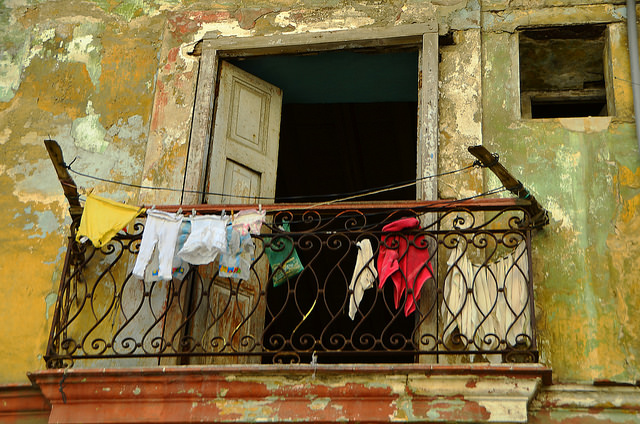
Race and inequality in Cuba’s home-based businesses
By Jade Harvey
[divider]
[dropcap]A[/dropcap] few blocks away from one of Havana’s busiest intersections, the wildly popular Don Donato Bakery operates out of the back of an old house in the city’s Vedado neighborhood. Equipped with a rusting oven (sustained by dozens of old spare parts) and an ancient Soviet standing mixer that shakes the floor when turned on, the bakery somehow manages to churn out hundreds of traditional croissants and locally-inspired guava buns each day. Apart from the enchanting smell, though, there is something else unique about this neighborhood staple: When the owner walks out to offer samples and explain the special of the day, visitors are greeted by a man who, unlike the vast majority of Havana’s newest private restaurant owners, is Black.
Privately owned restaurants run out of the home, like Don Donato, have always existed, though they were illegal prior to the fall of the USSR and subsequent economic crisis in Cuba. Since the industry’s legalization in the 1990’s, paladares have popped up across the island, expanding even more beneath the increasingly economically liberal administration of Raul Castro. Now a booming industry, paladares have allowed many Cuban families’ incomes to skyrocket; however, not all Cubans are reaping the benefits of the liberalizing economy equally. Havana’s newly revitalized paladar industry is almost exclusively run by white or light-skinned mulatto Cubans. As an Afro-Cuban entrepreneur, Pavel Donato Leon—proud owner of Don Donato Bakery—is the rare exception to this rule.
Professionally trained as a baker, Donato attributes his success to being un-intimidated by the lack of Afro-Cuban business owners around him. He has transformed messages growing up of being called a “negro, bien feo,” or an ugly Black man, into inspiration to be a father and entrepreneur “with a grand heart of flesh, not iron.” When asked about how he was able to make it in the new economy, he cites, “God and hardwork… and luck. Many people like me don’t have this kind of opportunity, so I am appreciative for where I am and work hard to do this the best that I can.”
Despite the racial diversity of the island and the supposed equality created by the Communist Revolution of 1959, Afro-Cubans remain largely excluded from new entrepreneurship opportunities, due in part to a lack of capital in the form of remittances from the USA and abroad. With salaries and wages capped by the government, one must rely on either money earned through black market exchanges or funding from family abroad in order to open up a new business.
According to CNN, Americans send $2 billion in remittances to the island each year with this money typically landing in the hands of white Cubans since the vast majority of Cubans who emigrated after the Revolution were white or fair–skinned mulatto.
Researchers from the Center for Anthropology say that whites in Cuba are 2.5 times more likely than Blacks to receive remittances. In the past, remittances were used largely for private consumption, whereas now—with the money going towards profitable private businesses—the inequality between the rich and the poor, the Black and the white, is starkly visible.
Afro-Cuban business ownership is strikingly rare in Havana, and some Cubans fear that changes in US-Cuba relations and increased remittances will exacerbate such economic disparities. As part of President Obama’s historic move to thaw relations with Cuba, Americans can now send up to $8,000 a year to family in Cuba, as opposed to the previous limit of $2,000. The fact that many white and fair-skinned mulatto Cubans receive these remittances is no way negative — money is much needed in Cuba, regardless of race or ethnicity. Yet the difference between the haves and the have-nots, a difference commonly tied to race, is becoming more apparent with the opening of each new paladar selling food to tourists and an expanding middle and upper-class, while others walk past these establishments unable to afford to eat there, let alone open one up themselves.
When discussing race in Havana, though, one must remember that black and white do not necessarily mean the same thing as in the United States – many people who would be considered Latino in the States identify as white in Cuba, while Blacks, or Afro-Cubans, usually mean anyone with darker skin and less-Aryan features.
On the busy Avenue 23 in Havana, new paladares pop up weekly, with friendly, hard-working white and light-skinned faces. Only time can tell whether other Afro-Cubans will join Donato in diversifying the industry, or whether Don Donato Bakery will remain the neighborhood anomaly.
[hr]
Jade is a Junior in Ezra Stiles college. You can contact her at jade.harvey@yale.edu.